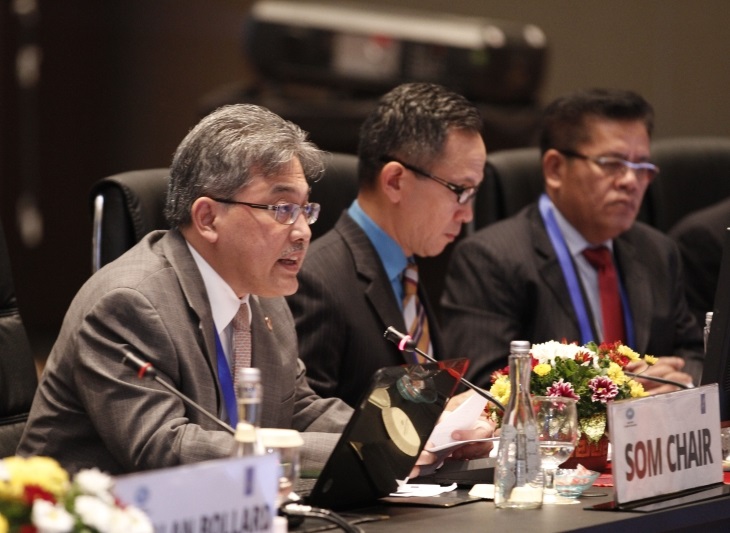APEC, G20, and ASEAN chart way forward on connectivity

APEC, G20, and ASEAN senior officials met for the first time to identify synergies and recommend a way forward on joint connectivity and infrastructure development at a roundtable meeting in Medan on Thursday.
Officials and experts from APEC, ASEAN, and the G20 as well as representatives from the private sector, think tanks, academia and multilateral development banks provided insights on possible joint work on connectivity and infrastructure development that informed the APEC Third Senior Officials Meeting in Medan 5-6 July. Inputs from the roundtable will also inform the APEC Ministerial Meeting in Bali in October 2013.
“In particular, we would like to recommend APEC Senior Officials and Leaders to support a small number of flagship joint connectivity and infrastructure projects and set up a public-private working group to manage its implementation,” said Indonesian Vice Minister of Finance, Mahendra Siregar, who is the G20 Sherpa for Indonesia.
“For example, a possible joint flagship project might focus on improving and developing efficient ports and airports to reduce the cost of international commerce and allow more population centers to become engaged in production networks,” added Vice Minister Mahendra.
Vice Minister Mahendra explained further that the new working group to manage flagship projects should have members with expertise covering project preparation, understanding financial markets, project management and implementation including experience and oversight of professional feasibility studies. This could include members with relevant experience in the field or within private sector, such as those who are involved in Asia Pacific Infrastructure Partnership.
For example, many large-scale public-private infrastructure projects are located in remote areas, and local governments do not have the required capacity either in project design or legal expertise. Experts also recommended APEC, G20 and ASEAN work together to reduce the time it takes from project approval to operation as income streams are critical to private sector involvement.
“These issues are important because any joint flagship infrastructure projects between APEC, G20 and ASEAN are not going to be possible without strong private sector involvement,” said Ambassador Yuri O. Thamrin, APEC 2013 Senior Officials’ Meeting Chair.
“As APEC develops its connectivity framework in the coming months, we will consider these recommendations and insights on how we can effectively work together with G20 and ASEAN to address connectivity and infrastructure issues in the broader region,” concluded Ambassador Thamrin.
APEC is currently developing an ambitious plan that will deepen and broaden the region’s connectivity around and across the Pacific Ocean and within APEC’s archipelagic and continental regions. It focuses on three pillars: physical connectivity, institutional connectivity, and people-to-people connectivity.
ASEAN and G20 are also engaged in similar efforts. In ASEAN, the emphasis on connectivity and infrastructure is towards achieving the ASEAN Community in 2015. In the G20, the focus is on developing infrastructure as a means to achieve strong, sustainable and balanced global growth and as part of “growth through quality jobs and investment.”
# # #
For more information or to arrange possible interview opportunities, please contact Jennifer Juo +65 9721 8660 at [email protected] or Michael Chapnick +65 9647 4847 at [email protected].
Additional details about APEC meetings, events, projects and publications can be found at www.apec.org. You can also follow APEC on Twitter and join us on Facebook.

